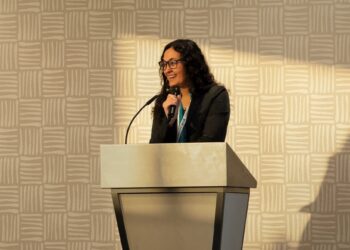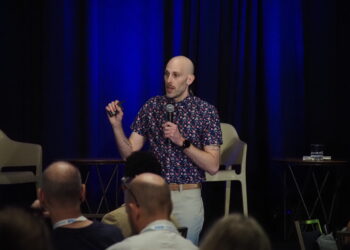Changes are coming at producer responsibility organization Circular Action Alliance in California, with Rachel Wagoner moving out of the California executive director role and into an “external advisory capacity.”
The change comes after a formal ethics complaint was filed against Wagoner, who was formerly the director of the California Department of Resources Recycling and Recovery before taking the CAA role. The complaint alleged that she is lobbying her former agency in violation of a state “switching sides” ban.
But the company in a press release said the staff changes were planned, and CAA is “in the final stages of hiring several key operational roles at the state and national level.”
The California Fair Political Practices Commission database does not show an open case related to the ethics complaint. It’s unclear if there will be a case opened or if the complaint was – or will be – dropped.
The press release states that Wagoner’s “evolution” to an external advisory capacity role in June “builds on Wagoner’s engagement with CAA, involving an initial phase of leadership and internal assessment to build a strong California foundation.”
“The significant operational progress in California and the evolving SB 54 regulatory landscape align to make this the optimal time for this planned evolution,” the press release added, and CAA will start a search for a new operational executive director.
“We appreciate Rachel’s leadership and the foundation she has built for CAA in California,” Jeff Fielkow, CAA CEO, said in the press release. “As we now turn our full attention to implementing the complex requirements of SB 54, we are committed to maintaining our momentum as we build our California team.”
CAA is currently working through a new set of SB 54 draft regulations and dealing with approaching deadlines. Fielkow said the work is “entering an accelerated phase.”
“With the informal rulemaking period underway and final regulations on the horizon, we’re intensifying our focus on building a robust program plan, reimbursement mechanism to enhance the recycling system, and reporting systems to meet California’s ambitious recycling and waste reduction goals,” Fielkow added.
CAA launched a project to help build up its source-reduction model, with an incentive system and a clear outline of the steps and costs necessary for producers to accurately report progress.
As for the reimbursement methodology, CAA is working on three main areas: creating a system-wide database of recycling systems, including participants, programs and material flows; carrying out a baseline cost assessment; and developing a streamlined reimbursement process.
Recycling system costs in 2022 will be the baseline for the cost assessment, the press release noted, allowing CAA to identify and quantify the new costs “directly attributable to meeting SB 54 requirements.”
The next California date for producers to be aware of is Aug. 1, when the registration portal opens with a closing deadline of Sept. 5. After that, the online reporting portal will be available for producers from Sept. 15 to Nov. 15.
“Drawing on valuable experience from Oregon’s Recycling Modernization Act, CAA is enhancing its online portals to streamline producer registration and data reporting,” the press release stated. “This proactive step will ensure a smooth and efficient reporting process for participating producers.”
A version of this story appeared in Resource Recycling on May 28.




























